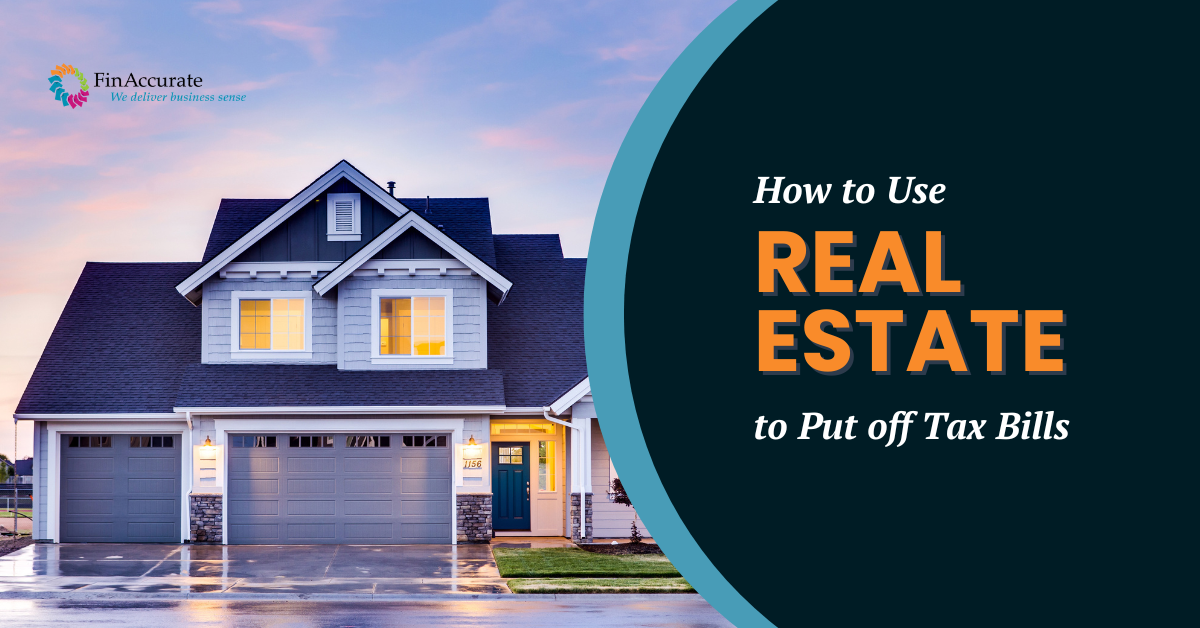Investing in real estate is a smart move to grow wealth and reduce your tax burden. There are some key benefits to keep in mind. First, you can lower your taxable income by using depreciation on income-generating properties. Second, 1031 exchanges allow you to delay paying taxes on your real estate gains.
You can also tap into the equity of your real estate to fund new investments or other needs. If you own a home, there’s good news too. The personal residence exemption shields you from capital gains taxes when you sell your home, and you can deduct your mortgage interest.
Now, let’s explore these strategies to see which one works best for you. By the end, you’ll have a clearer picture of how real estate can help you manage your tax bills while building wealth.
Read More – Guide to Filing a Business Tax Extension in 2023
1. Maximize Tax Benefits with Depreciation Deductions
Recover your rental property investment costs using annual tax deductions, known as depreciation. The IRS sees depreciation as a fair way to account for property wear and tear and obsolescence.
Most real estate investors use a method called MACRS for depreciation. This means you can spread the depreciation of residential rental property and improvements over 27.5 years. Appliances and fixtures depreciate over 15 years.
The interesting part? Depreciation expenses often create a net loss on your property’s paper value, even if it’s making money. You’ll report this loss, along with utilities and insurance costs, on Schedule E and deduct it from your overall income. This helps reduce your tax bill while you continue to profit from your real estate investments.
2. Using 1031 Exchanges for Tax Benefits
You can use something called a 1031 exchange to delay paying taxes. It’s named after a part of the tax code (Section 1031). This trick lets you sell one property, take the money, and buy another property (or even more) that costs the same or more. But you have to do this within a certain time frame.
Most of the time, people use 1031 exchanges for real estate. However, there’s a rule change since December 31, 2017. Now, you can only use this exchange rule for real estate you use in a business or for investment, not property you’re mainly selling.
So, in simple terms, if you sell a property and use the money to buy another property for your business or investment purposes, you can delay paying taxes. This can be a big money-saver.
a. Property Regulations for Tax Savings
To save on taxes using real estate, make sure your properties meet these criteria:
- Replacement properties must be worth as much as or more than the ones you’re selling.
- You can only exchange real property for real property, not other stuff like REITs.
- Both properties should be used for business or trade, like investments.
Any cash or non-like-kind property you get is taxable. This includes cash and physical items like fixtures. Mortgage boot happens when your new property’s debt isn’t less than what you paid off from the old one.
b. Investor Rules for Tax Benefits
If you’re an investor, follow these rules to save on taxes:
- Use a qualified intermediary:
They’ll hold your money during the exchange. The Federation of Exchange Accommodators explains their role.
- You have two deadlines:
a. Within 45 days of selling your old property, give a list of replacement properties to a qualified party, usually the intermediary. There are limits on how many you can list.
b. Buy qualifying replacement assets within 180 days of selling the old property or 180 days after your tax return’s due date for that year, whichever comes first.
3. Use 1031 Exchange: Step -by – step guide
- Step 1: Sell and Replace with 1031 Exchange
When you want to sell an investment property and avoid hefty tax bills, try the 1031 exchange. Here’s how it works:
- Step 2: Make a Deal with a Qualified Intermediary
To keep things tax-friendly, you team up with a qualified intermediary. Then, you put your original property up for sale.
- Step 3: Handle Your Proceeds Smartly
After selling your property, the net proceeds go into a special account managed by the qualified intermediary.
- Step 4: Find Your New Property
During the next 45 days, you need to pick out potential replacement properties. Make a list of these.
- Step 5: The Clock Is Ticking
You have 180 days in total to close the deal on your chosen replacement property. Don’t let the time slip away.
- Step 6: Seal the Deal
With the money from your original property’s sale, buy the new investment property. The qualified intermediary wires the funds to the title company.
- Step 7: Mission Accomplished
Once everything is done, the special account is closed, and your transaction is complete. You’ve successfully used real estate to put off tax bills.
Read More – Important Tax Dates and Deadlines in 2023
4. Get Home Equity for Tax Benefits
If you’ve got a good amount of equity in your home or investment property, you can tap into it by refinancing. This means getting a new mortgage that’s larger than your existing one and taking out the difference in cash. Rules can differ depending on where you live.
a. Here’s how it typically works:
Let’s say your property is worth $240,000, and you currently owe $100,000 on it. You might be able to borrow up to $112,000. That’s calculated by taking the property value ($240,000) minus your current loan ($100,000), and then multiplying the result by 80%, which equals $112,000.
b. Keep in mind:
This method carries some risk, but if you can handle more debt, it can help you grow your wealth without needing to do a 1031 exchange or sell a property.
5. Delaying Taxes When Selling Your Home
When you sell your primary residence, there’s good news: you might not have to pay capital gains taxes on up to $500,000 in profit if you’re married and file jointly, or up to $250,000 if you’re single, as long as you’ve lived in the house for two of the last five years.
If your profit is more than these exclusions, you can still save on taxes by doing a 1031 exchange.
So, If you’re in an area where home values keep going up, you can use a strategy of selling your current home and buying a more expensive one. This way, you build your wealth and minimize taxes at the same time.
Read More – State Income Federal Income Tax: What’s the Difference?
Conclusion
In conclusion, there are several ways for real estate owners to reduce their tax bills when selling their properties.
The right choice among the above options depends on your individual circumstances. But implementing any of them will help you maximize the benefits of your real estate investment.




